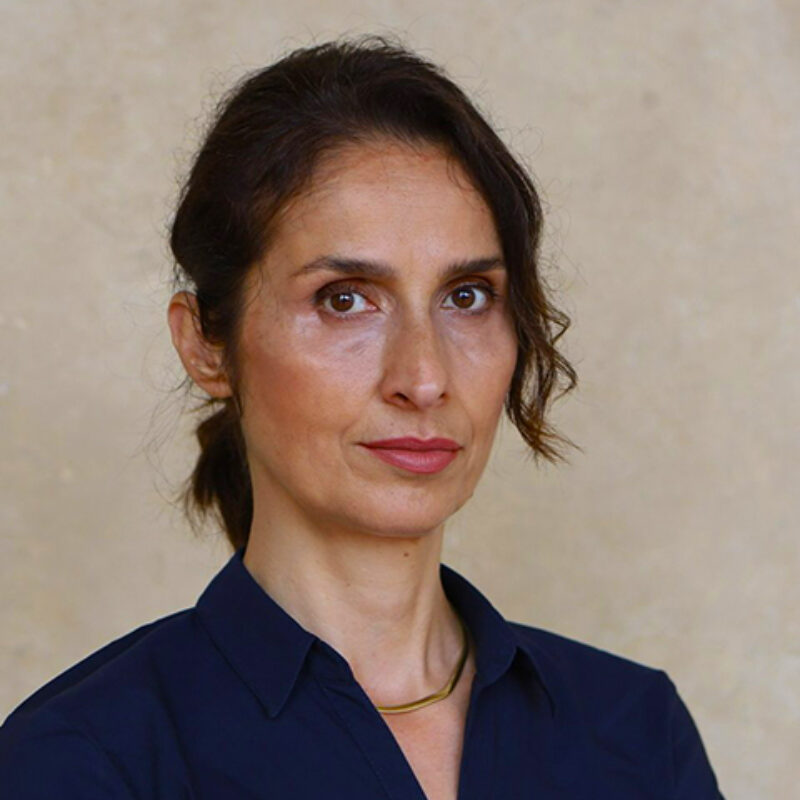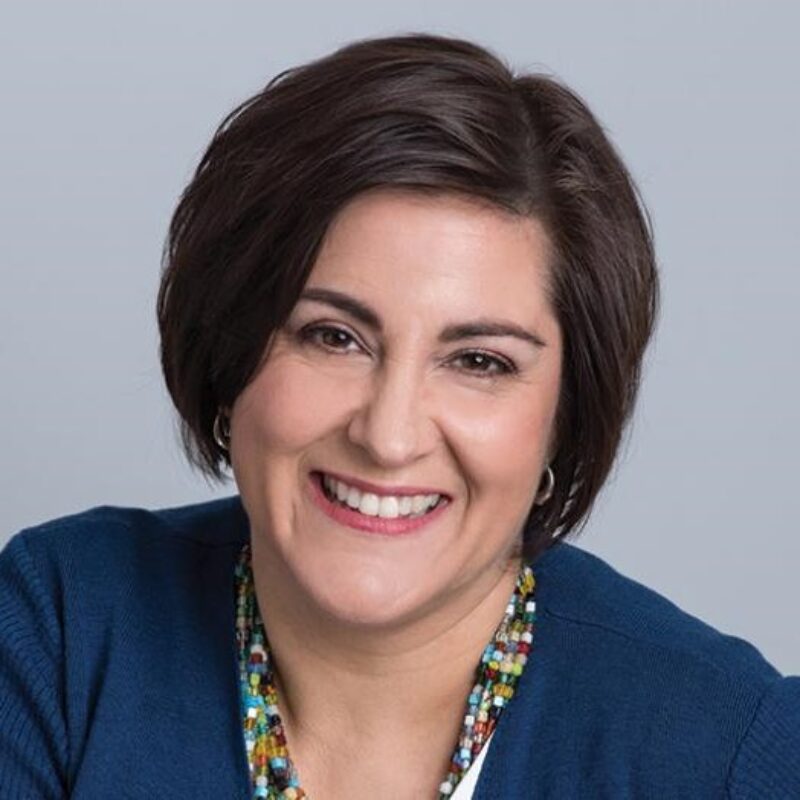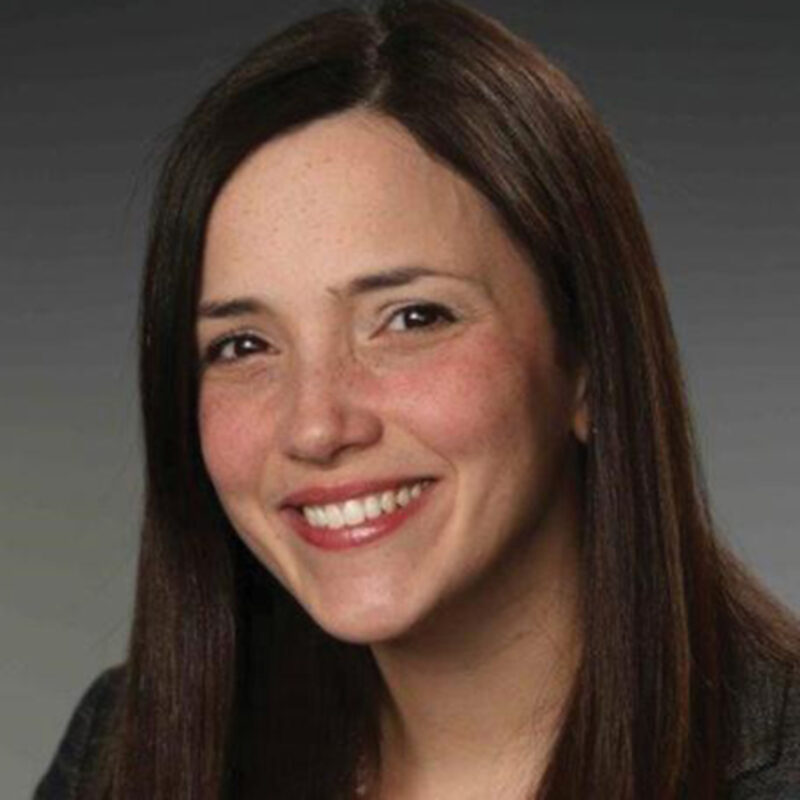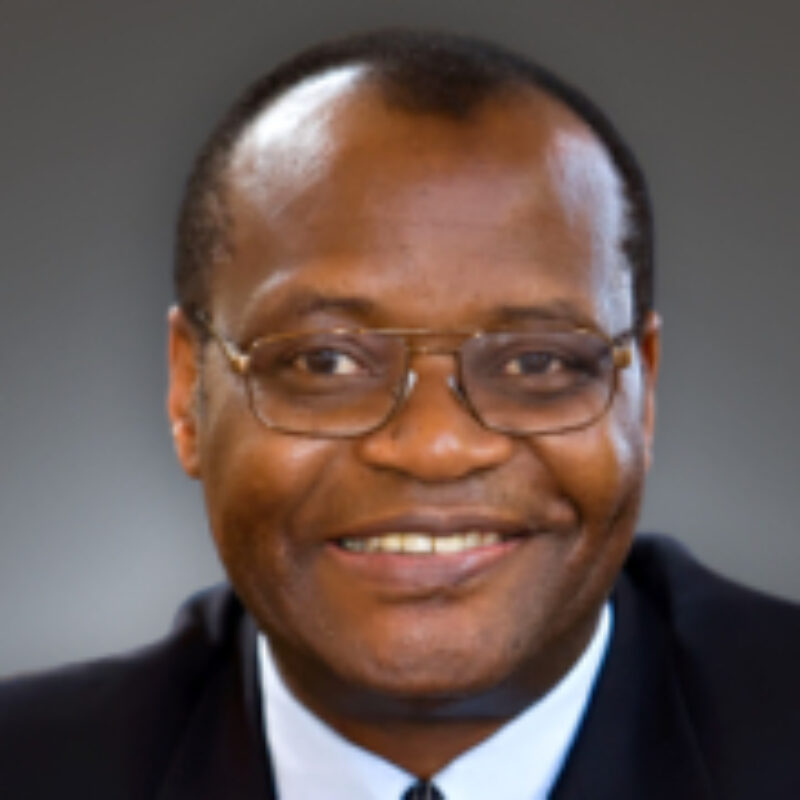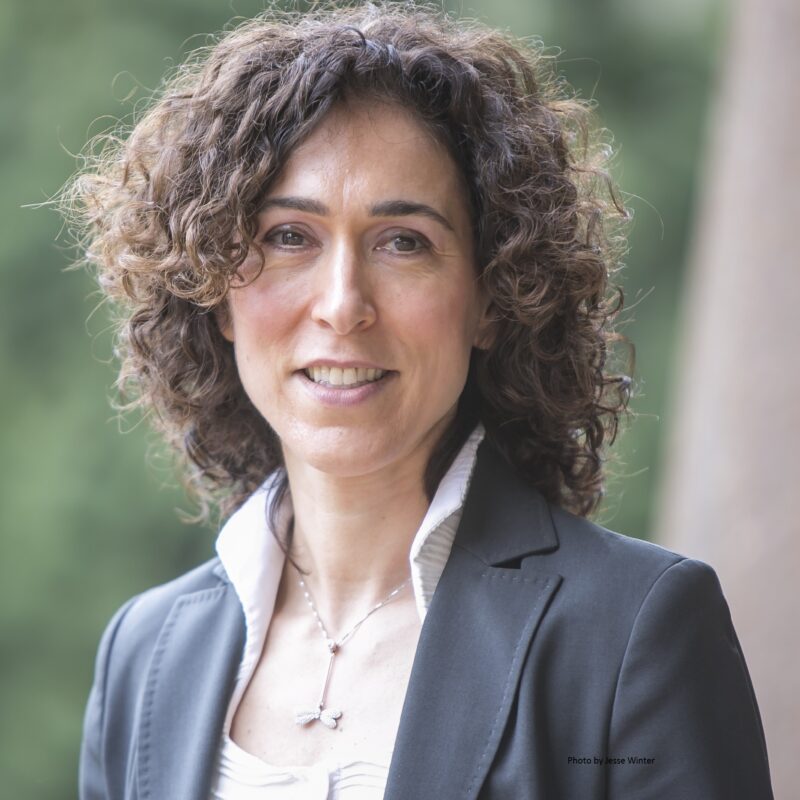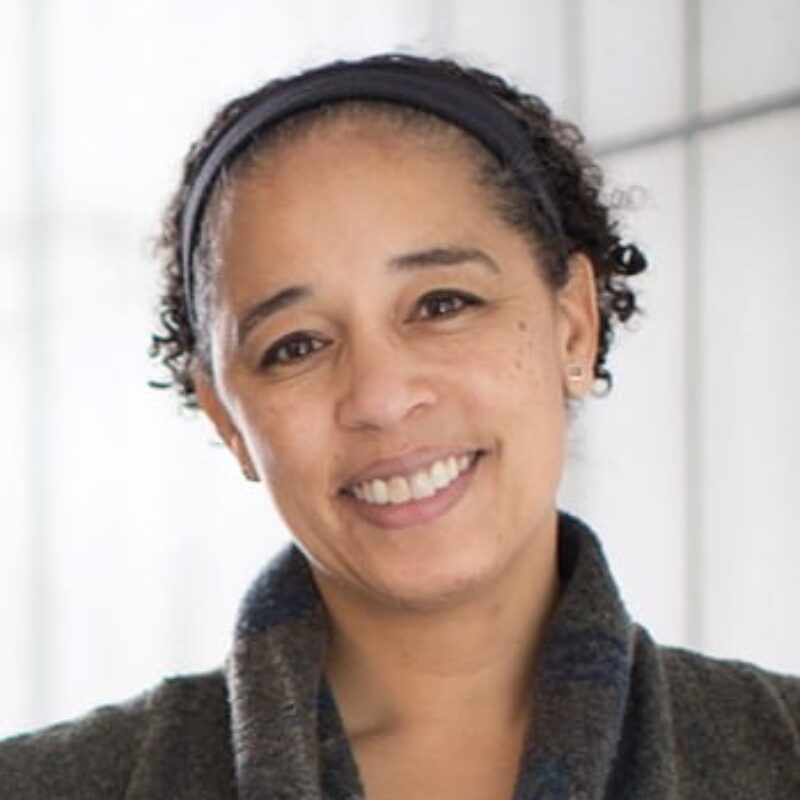Financial Policies Committee (FPC)
- Tracks the financial condition and policies of the University.
- Develops priorities, based on educational considerations, which should be reflected in the budgets of the endowed and statutory units.
- Assists the administration with the budget-planning process.
- Considers the financial implications of financial aid, retirement policies, and faculty salary levels.
Members
Arts & Sciences, Brooks School of Public Policy
Term Ends: 6/30/28
ILR School
Term Ends: 6/30/27
Vice President for Planning and Budget
Ex Officio
Interim
Veterinary Medicine
Chair
Term Ends: 6/30/26
Arts & Sciences
Term Ends: 6/30/26
SC Johnson College of Business
Term Ends: 6/30/28
Engineering, Bowers CIS
Term Ends: 6/30/28
Law School
Term Ends: 6/30/28
Brooks School of Public Policy
Term Ends: 6/30/28
SC Johnson College of Business
Term Ends: 6/30/26
CALS
Term Ends: 6/30/28
Arts & Sciences, Bowers CIS
Term Ends: 6/30/26
Associate Dean of Faculty
Ex Officio
Dean of Faculty
Ex Officio
Bylaws
Charge
- Undertake a continuing and comprehensive analysis of the financial condition and policies of the University and develop priorities, based on educational considerations, which should be reflected in the budgets of the endowed and statutory units.
- Participate, with the cooperation of appropriate administrative officers, in the endowed and statutory budget-planning process.
- Consider the financial implications of all issues for which responsibility is also assigned to other Faculty Senate Committees (e.g. financial aid and retirement policies).
- Examine and make recommendations concerning issues and considerations that affect the economic status of the faculty. Such examinations shall include, but are not limited to, the improvement of the conditions of employment including salary levels, fringe benefits, leaves, consultation and interdepartmental compensation.
Composition*
Eleven members of the faculty, appointed with the concurrence of the Faculty Senate, by the Nominations and Elections Committee for three-year terms. The Nominating Committee is directed to ensure that the committee membership consists of five statutory and five endowed members of the faculty. The eleventh member can be from either the statutory or endowed units.
The Vice President for Planning and Budget is ex-officio non-voting member.
*Except as noted specifically below, the Committee shall be organized and operate under the Rules and Procedures governing standing committees of the Faculty Senate.
Adopted by the Faculty Council of Representatives, December 9, 1987, Records, pp. 6530-44C, Appendices A, B and C; amended May 13, 1992, Executive Committee of the FCR. Changes in nomenclature from FCR to Faculty Senate and to reflect amendments to Organization and Procedures of the University Faculty, October 1995.
Where not listed as a member or chair, both the Dean of Faculty and the Associate Dean and Secretary of the Faculty, shall be a ex officio members of each committee of the University Faculty and each committee of the Senate. (Faculty Handbook, Article V Section D Part 7) (Faculty Handbook, Article VI Section A Part 3)
2024-25 Annual Report
To: Dean De Rosa
From: Luis Schang, Chair
Date: June 30, 2025
Subject: FPC Annual Report
Committee Membership
Diane Burton (ILR)
Donald Kenkel (CHE)
Francesca Molinari (CAS, CS)
Dan Luo (CALS)
Rebecca Slayton (CAS)
Muna Ndulo (LAW)
Annette Richards (CAS)
David Ruppert (COE, CIS)
Nancy Chau (Johnson)
Gideon Saar (COB)
Luis Schang, Chair (CVM)
Eve De Rose, Ex Officio
Chelsea D. Specht, Ex Officio
Laura Syer, Ex Officio
John Siciliano/Kavita Bala, Ex Officio
Introduction
The Financial Policies Committee of the University Senate meets monthly or more frequently during the term or as required during the summer. The schedules include two meetings with the Provost and/or VP Budget and Planning per term, to discuss ongoing and predicted budgets, including Operating Budget, Capital Budget, and related issues like long term impact of inflation on affordability, and long term projections. This year, the first meeting with the Provost was with the then Internal Provost, John Siciliano, and the second with the new Provost, Kavita Bala. The highly interactive and productive discussions provide University administration with Faculty feedback and questions regarding budgetary and other financial issues and gather information that Administration wants to share with the Faculty. Other themes pertinent to Cornell Financial Policies are discussed internally and with guests, which typically are from University administration of the Faculty body.
Meetings were remote this year because of the increased security at Day Hall. The remote format also facilitates the attendance by members or guests who are not close in Day Hall, or even in Ithaca at the time of the meeting. All participants are provided with a secure Zoom meeting link to join from a private setting, such that all interactions remain private.
For the first part of the Academic year, the FPC was focused on following the general themes that affect Cornell Financial Policies and their implementation, including Endowment management, Development, Contingency Funds, eCornell and other remote initiatives, and compliance. With the changing landscape of Federal funding and other executive orders potentially affecting the University finances, the focus was changed in the second term of the year to the strategic management of the challenging landscape. A summary of each meeting is provided below.
The membership of the FPC had only one change from last academic year, with incoming Diana Burton replacing departing member Vanessa Vohns, both in ILR. Beyond changes, Gideon Saar was back from his sabbatical.
Monthly Meetings Summaries
Friday, August 30, 2-3pm – Internal Meeting
After a brief introduction of all members and a summary of the FPC charges, the meeting focused on setting the agenda for the first term, including meetings with the Provost John Siciliano, VP Research and innovation Krystyn Van Vliet and Senior Director for the Office of Sponsored Programs and Research Development Mary-Margaret Klempa, VP Budget and Planning Laura Syer, and, as decided during the meeting, with CIO Ken Miranda.
The meeting then discussed taking on the long term topics while the Cornell Leadership was undergoing a transition at the time, reaching the consensus was that the FPC should continue the conversation with administration about the long term plans for Cornell, regardless of any ongoing transition.
The FPC had consensus on continuing the critical discussions about equity, and it was concluded that the best immediate next step would be to first discuss it with the Provost in generic terms and then invite Vice President and Chief Human Resources Officer Christine Lovely to be informed about Cornell’s processes. This initiative got superseded in the second term with the necessity to explore the changing landscape and its influences in Cornell financial policies but it will be resumed in the next academic year.
There was strong consensus in continuing discussing salaries for faculty and staff and their implications in hiring and retention and on the differences in financial policies across different Cornell Units and their consequences. These items would be included in the discussions with the Provost and VP Laura Syer.
The FPC was very keen in a second meeting with CIO Ken Miranda to discuss the current performance of the endowment as well as any effects that last year’s protests may have had on the management and allocation of assets- if any- and how to mitigate them; this meeting was then scheduled by the Chair for late in the term
The discussion prepared the agenda of items to discuss with Provost John Siciliano in September, including continuing the conversation regarding the processes that Cornell pursues to ensure Equity across all faculty, the financial headwinds, including student’s unionization, which have several impacts on Cornell, and their effects on faculty searches, Financial Aid, and other policies. The longer effects of unionization on finances, teaching, and learning experience at Cornell, as well as the impact of the changes in travel reimbursement policies and processes on faculty and specially on trainees. Another topic of interest was that Cornell compliance and related activities appear to be having a significant impact on the ability of Faculty to apply, secure, and spend extramural funding via grants, contracts, and other means. A number of faculty in different units have raised a variety of challenges they face in raising or even spending the funds. The FPC would like to discuss the level of awareness of this potential problem and its implications and how to manage it. The FPC was also interested in discussing the renewed the agreement with the City of Ithaca. As Cornell occupies a large piece of land in the City and is a major contributor to the City, this arrangement has a large impact on the faculty and staff living in Ithaca. The FPC would appreciate the perspective of administration regarding this agreement and its financial implications to the faculty and staff living in the city.
Friday, September 20, 2-3pm – Meeting with Provost John Siciliano
After the introductions of the FPC members and Provost, the discussion focused on the previously selected topics.
Regarding equity, the Provost discussed that equity is highly focused on CIP, which provides some discretion but between tight bounds. The decision making rests in the units under central administration supervision There is a multivariate model including years in service, productivity, etc. that is used to find potential outliers, with focus on race, gender and other variables. Most of the anomalies detected are justified. As a potential limitation any algorithm focusing on outliers does not detect full groups of faculty falling behind that would result in a systematic discrimination. This potential is being monitored but the details were not discussed. The algorithm is used post-hoc, not a priori, and it has been implemented for some 12 years or so. The discussion centered on what is rewarded in CIP recognition, and it appears that Scholarship tends to prevail. It would be perhaps positive to release an analysis about whether there are issues regarding different compensations for different groups of people performing the same work.
Regarding the Financial Challenges, the UAW discussions had ended in a good agreement after challenging negotiations. The administration is of the opinion that sustainable living wages were reached and Cornell made significant efforts. Financial support for students continues to place some strains but dedicated development may help. The discussions about Graduate student unionization were mainly addressing non-economic matters at that point and most issues should be relatively straightforward. The challenge is delineating precisely what are student activities and which ones are employee activities, and whether the source of salary for a student (a specific grant or contract, for example) can be interpreted as limiting the scientific freedom of the student or not.
Compliance is a major issue for the administration as Cornell is getting overwhelmed by compliance. It is critical to determine what is critical and what is not. Increase in compliance is drastic and the new mandates are typically not funded by the agencies increasing the compliance requirements. These discussions are spearheaded by the Legal counsel.
Regarding the negotiations with the City, the City tax base becomes increasingly precarious as industry and commerce leave town. Cornell takes a long swath of land but is also the largest employer and lifts the county significantly. There is a large concern about K-12 education quality, which has no easy solution. Public School quality is dropping and Cornell is aware, but the area schools are outside Cornell jurisdiction.
Friday, September 25, 2-3pm – Meeting with VP Research and Innovation Krystyn Van Vliet and OSP Senior Director Mary-Margaret Klempa
After the introductions, the discussion focused on OSP as an organization and its work supporting the very large Cornell research enterprise and the associated challenges.
Cornell is a top 20 University in the country year over year in research expenditures. Growth of the research enterprise has been very good, by about 50% in the last 5 years. OSP has a total of 48 FTE, but staffing has not grown in synchrony to the increases in the research enterprise. Two of the eight new positions requested in 2021 were assigned. Tools are also needed to continue supporting adequately the growing research enterprise. Funds are limited and the challenge is that all OSP resources come from central allocation. Therefore, any OSP funding increase results on less funds allocated to the independent Cornell units.
OSP is involved in all supported activities, not just research. Issues like “fee for service” are in a grey area, they are not necessarily processed through OSP (they still need to go through innovation and research). There have been some issues with fee for service situations, and OSP has developed templates that Colleges sign and administer themselves to facilitate the process.
OSP has developed a pre-award support team, PRO. PRO supports the College of Engineering, Cornell Tech, most of Arts and Sciences, and Architecture and Urban Planning. CALS and CVM have independent PRO support, although these PRO teams cannot negotiate contracts on their own. Although they are independent, they interact closely with OSP.
Sponsored financial services takes the financial administration of the awarded contracts or grants and manages the financial risks.
ORIA deals with compliance, including research security and international compliance. There is a new export control officer in ORIA.
OSP expressed interested in the Faculty Senate, likely through FPC, collecting data about the challenges the faculty face raising and using funds to sponsor research.
Friday, November 22 2-3pm – Meeting with Vice President Laura Syer
This was the customary fall meeting with VP Syer to get informed and discuss the operating budget from the past current and planned for next academic years.
The meeting discussed the general volatility in the education industry in general, in particular in comparing with the peer institutions, such as Princeton, Harvard, UPENN. The industry in general is still affected by the COVID-19 post-COVID-19 financial challenges
There have been some changes in the reporting organization. There is now a single overview for the financial and budget teams and Weill Cornell now cross reports together with Ithaca to the Provost. The Endowment payment last calendar year was 5%
Friday, December 13 2-3pm – Meeting with CIO Ken Miranda
This was the first meeting of the current FPC committee with CIO Ken Miranda, to discuss the past and current status, and future strategies for the Endowment.
Ken discussed the principles of investment based on long, intergenerational, term. Consequently, the endowment is heavily leveraged in equity and the management is not reactive, or short term. The portfolio is diversified and market timing is minimized and only strategically used.
Cornell does not invest directly, using instead a manager approach to have access to the best management in the world. Expensive managers are only hired when they add significant value, however. Otherwise, the goal is to keep the managing costs as low as possible. Consistently, fees and cost are kept low, 18 base points or less and staffing is managed according to portfolio size.
Cornell has the smallest endowment per student among its peers, at about $368,000 per student, but it is not clear that this is the best metric for a research intensive university.
Allocations of the investments are similar to the peers (Ivy+), except that defensive allocations are lower for Cornell (18 vs 27% for peers).
The meeting then discussed some headwinds. Stress in the real estate market (office in particular) may have bottomed, as shown by office to residential conversion slowing down. Office to residential conversion is expensive and it mostly only works when the office value is significantly below the residential one.
The endowment income was 8.7% in 2024 and the payout was 5%. Cornell trailed the benchmark for a second year in a row. Private equity is currently significantly underperforming, which explains the results, but there are signs that it is turning around now. Private equity is asynchronous with the rest of the market. Income for the last 5 years, was 10% per year (above benchmark). Over 5 years, Cornell endowment has beaten all benchmarks.
Friday, February 7 2-3pm
Resulting from conflicting schedules after the start of the term, the first FPC meeting of the second term of the 24-25 Calendar year took place in early February.
The first meeting of the term was dedicated to developing the agenda and focus for the term, which was decided would focus on the changing landscape for research and university education. This focus was changed as the challenges changed in the following weeks. The meeting covered an overview of the agenda and topics to be covered during the term.
The priorities were place the National research funding situation and its impact on Cornell, and the potential economic scenarios and their impact on Cornell. The FPC will continue working in the continuing procurement and compliance issues, but the priority for the term was set on the national funding and education landscape changes
Another priority was on establishing the interactions with the new Provost, including developing the agenda to forward to the Provost for the first meeting.
There was also a general discussion about how to best approach the graduate student unionization, including the increased costs and how to cover them. The FPC considered Possible future Meeting with graduate school and Associate Dean Jason Kahabka.
Another topic of consideration Cornell and Ithaca education. Leverage of the current situations. It was considered that this area may not be in the FPC mandate, and the Chair was tasked with consulting with the Dean of Faculty. It was eventually decided that this area does fall in the FPC charge, and it will be included in the following year, unless the changing landscape demands exclusive focus on the changing conditions.
Friday, March 14 2-3pm – Meeting w/ Provost Bala
This meeting was the first with the new Provost and it was dedicated to a general discussion about the vision and the challenges and opportunities arising from the current state of affairs.
After a brief introduction of the FPC members, Dr. Bala discussed her interest in, and vision for, the position. In brief, Dr. Bala was very excited about the position, being an incredibly consequential time in education, with the breathtaking pace of discoveries and progress in all areas. Also, a time of great challenges, with obvious society polarization, some lack of trust into superior education and research, and a general lack of credibility of science. Time of great opportunities, too.
It is challenging for the society to keep up with the breathtaking speed of progress, including the legal, sociological and ethical implications. It’s time to face and address the challenges that come through us at Cornell, through our mission to provide education to any person in any study, our land grant mission and the general lack of silos in Cornell.
The conversation then focused on the evolution of education and Research, with participation by the provost and the members of the FPC.
The society, and Cornell, needs new kinds of education and new kinds of research. For example, AI is changing the education, research, and workplace landscape. Cornell must prepare the students for an AI shaped world and must become a leader in this area in research, teaching and administration. Jobs are already changing, and some are being replaced by AI and similar technologies.
Cornell needs to keep innovation in education, but there are great challenges including the Impact of technology on the society and planet.
Threats analyses. There are many potential financial threats, which are being dynamically evaluated. There are several considerations to ameliorate some financial threats, which may include the use of AI to increase efficiency and developing or prioritizing other sources of support for research and education. The potential role of research that needs approval by the founder to be published in the future of research and education funding is considered.
The potential impact of the status on Cornell’s student body at all levels is being dynamically monitored. Faculty workload is being monitored as well as the evolution of the student to faculty ratio.
The potential impact of the Graduate student unionization on increased costs and quality of the Cornell Education mission is being actively monitored.
The previous VP research and innovation portfolio is now divided between the VP research and VP innovation and corporate strategy.
Friday, April 11 2-3pm – Meeting w/ VP Syer
The meeting was centered on an overview of the budget as of right now, highlighting the thinking about mitigating risks. The conversation was framed on the uncertainties of the financial and regulatory environment for a research intensive university
In general revenues were apparently going well, as were gifts, but there are now new uncertainties, yet to be fully defined. At the same time, compensation and benefits are increasing, as have general expense and purchased services and Legal expenses (mostly related to financial aid and lawsuits).
The current threats include the potential changes in the endowment tax, which could become highly consequential depending on levels, and in the IDC/F&A.
As a result of the quickly evolving landscape, the CIP pool for FY26 was yet to be defined at the time of the meeting.
Planning ahead, there are several issues that will need attention. For example, there is a growing tuition gap between endowed versus contract colleges, and financial aid expected to increase; many different strategies are being considered at this time.
Regarding expenses, personnel costs are the largest, as expected from a University, which is a people business. Considering the uncertainties, thus, there was a hiring freeze in place at the time of the meeting, till June 30. Regarding large capital expenditures, such as new buildings, the Cornell policy is to have 75% of the cash in hand before design and 100% before construction, so the changing landscape has no implications to potentially uncovered capital projects.
There was a discussion about the ongoing audit and review of the allocation cost model, which is reviewing the metrics and distribution of tuition and fees revenue.
Friday, April 18 2-3pm – Meeting w/ Provost Bala
The meeting was focused on discussing the current financial threats and challenges, and opportunities.
At the time of the meeting, all DOD funding to Cornell was frozen, but the cancer protocols with patients had been reinstated. Cornell has started the appeal process. Appeals are slow. Appeals to funding interruptions are started by the PI, then de Department then the Dean, then the VPR office, and only then the Provost’s office can get involved.
DOE has reduced the indirect costs paid, and Cornell is one of many plaintiffs in the legal challenge to this change.
Because of the abrupt and unanticipated changes, large essential facilities that have grant funding withheld or frozen are being run with support from the VPR. Likewise, the process to follow when is necessary to transfer expenses, for example students’ salaries, from grant-supported positions to discretionary funds, first the funds held by the PI are exhausted, then those held by the Department, then by the Dean, and finally by the VPR.
Also because of the changes in the funding landscape, graduate students who had not yet accepted an offer had the offers withdraw.
Nine international students had the status revoked, and some may have had the visa removed. This also affects’ Cornell research and education missions
At the time, new Faculty searches are not open.
Cornell administration is analyzing potential 2, 4 and 8 year scenarios, and the different adjustments that may be needed under the different future possibilities.
CIP for the upcoming academic year is under continuous ongoing evaluation; no final decisions had been reached yet at the time of the meeting.
Friday, May 2 2-3pm – Private Meeting
The committee discussed the progress during the term, but the focus was on the later meetings and the challenges and threats the current situation pose to Cornell finances and their implication to faculty, staff, and students. The FPC is keen in bringing faculty vision to the administration early on during these critical times. The ongoing changes in the education and research enterprise funding models in the country have direct impact on the Faculty and the student body. Several topics are of interest to the FPC, including the financial aid sustainability (including whether grants are a long term sustainable vehicle), equity in efforts across units, effects on faculty compensation and how to distribute any required efforts, and on unrestricted accounts of Units and faculty. There are special concerns about the effects on faculty recruitment and retention and graduate student financing.
The committee discussed being willing to meet during the summer if required, and the Chair was tasked with discussing this possibility with the Dean of Faculty.
2023-24 Annual Report
To: Dean De Rosa
From: Luis Schang, Chair
Date: June 24, 2024
ubject: FPC Annual Report
Committee Membership
Luis Schang, Chair (CVM)
Vanessa Bohns (ILR)
Donald Kenkel (CHE)
Francesca Molinari (CAS, CS)
Dan Luo (CALS)
Rebecca Slayton (CAS)
Muna Ndulo (LAW)
Annette Richards (CAS)
David Ruppert (CIS)
Nancy Chau (Johnson)
Gideon Saar (COB)
Dean Eve De Rose, Ex Officio
Associate Dean Chelsea D. Specht, Ex Officio
Vice President Laura Syer, Ex Officio
The Financial Policies Committee of the University Senate meets monthly or more frequently during the term or as required during the summer. The schedules include two meetings with the Provost and/or VP Budget and Planning per term, to discuss ongoing and predicted budgets, including Operating Budget, Capital Budget, the long term impact of inflation on affordability, and long term projections. The highly interactive and productive discussions provide University administration with Faculty feedback and questions regarding budgetary and other financial issues. Other themes pertinent to Cornell Financial Policies are discussed internally and with guests, which typically are from University administration of the Faculty body.
This year, the meetings were hybrid for the first half of the first term but had to be converted to fully remote when Day Hall security had to be increased. In person participants met in 305 Day Hall and remote participants attended via a secure Zoom meeting. Guests were offered the choice of joining in person or remotely for the hybrid meetings, which facilitates the attendance by members or guests who are not located in Ithaca. When the meetings transitioned to fully remote, all participants were provided a secure Zoom meeting link to join from a private setting.
After the COVID-19 focus of recent years, the FPC has now returned to the general themes that affect Cornell Financial Policies and their implementation, including Endowment management, Development, Contingency Funds, eCornell and other remote initiatives, and compliance. A summary of each meeting is provided below.
Monthly Meetings Summaries
Friday, August 25, 2-3pm
As the membership of the FPC had a significant continuity from last academic year, only the first part of the meeting was focused on the introduction of the new continuing members, and a brief overview of the FPC mandate. Then, the FPC established the agenda for the first term and set up the topics to be analyzed and discussed in the meetings with Provost Kotlikoff, VP Syer, and VP Van Vliet.
Friday, September 28, 2-3pm
The second meeting of the FPC was dedicated to a meeting with Provost Kotlikoff. The meeting discussed the central contingency funds, the separate funds for strategic initiatives, and the reserves at different units. The goal of the administration is to increase the contingency funds by 5M per year to reach a 50M total target. Another area of conversation centered on the SIP and tuition increases, which are linked. The significant inflation in 2022-23 eroded revenue and put pressures on salaries. SIP mostly follows ECI, which has a delay over CPI, and therefore salaries play catch up. SIP and tuition increases for the following calendar year are determined according to the projections of the CBO at the time when the decisions must be made.
Another area discussed was the management of the endowment, and the drastic positive change that has occurred of late. Cornell used to be towards the top among its peers in withdrawals and towards the bottom in performance, but the situation has now mostly reversed. eCornell and other non-traditional learning were also discussed in the context of their financial implications and demands on faculty.
The FPC also discussed with Provost Kotlikoff the financial commitments of Cornell towards the city of Ithaca, and the impact that it has on the affordability of the city for Cornell faculty and staff, in the context that Cornell provides its own services, valued at approximately $19M per year. Provost Kotlikoff was optimistic that the proposed financial agreement would be approved by the City, as it eventually was.
Another topic of discussion was the possible financial impacts of the then likely graduate student unionization, which has since been completed, with an emphasis of the neutrality of Cornell and faculty and staff and the importance of leaving academic matters out of labor issues.
Friday, October 28, 2-3pm
During the October 28 meeting, VP Laura Syer provided an overview of the updates on the budget 23-24, the projections for the 24-25 year budget and the early vision for the 25-26 budget. As always, Tuition and Fees are the largest source of revenue, close to 45%, and salaries, wages and benefits, of expenditures, close to 55%. Consequently, the major changes between FY23 and FY24 are in these two lines. The projections for FY25 are considering lower ECI and CPI and therefore lower increases in tuition and fees and SIP are anticipated. The implications of the current model to long term tuition rates and their sustainability were discussed.
Friday, November 17, 2-3 PM
The November 17 meeting focused on discussing potential limitations or barriers to raising grant and contract funding that had been brought to the attention of the Chair by a number of faculty.
The main issues that have been raised appear centered mostly in non-standard funding sources, although some do affect mainstream ones as well. The FPC Chair conveyed the issues raised by Faculty and the committee discussed them and concluded that this was an issue that it would analyze in depth.
Friday, December 15, 2023, 2-3 PM
The December 15th meeting was dedicated to gathering information about the processes that Cornell Faculty have to follow to secure grant and contract funding. A number of non-FPC member faculty were invited to discuss the challenges and potential barriers. After the introductions, the invited faculty make brief presentations and then there was an active discussion. The following items were highlighted by a number of faculty.
- There appears to be no optimized process to streamline the renewal of similar contracts, which must be renegotiated every time.
- F&A rates may be affected to the original source of the money paying a contract, but these sources can be difficult to track in some instances. Some examples were provided. Cornell’s F&A rate is typically higher than the standards in many fields, which can result in decreased competitiveness.
- Timing is critical, as some contracts are urgent (24 h to accept, for example), and there appears not to be optimized processes to deal with contracts in such a timeline.
- Contracts may involve software development, which requires participation of several Cornell offices for approval, which may not be entirely informed of the standards in the area.
- Another challenge resides in the requirement for line item budgets, which are not typical in some areas.
- There are different requirements between research from practice, although the tools used are the same.
- Some programs in health promotion started only in 2017, and there appears not to be optimized process to support raising grant or contract funding in this area. Main funding in the area tends to come from the State or other States. Contracts are typically small, by direct tendering, and F&A rates offered are typically only up to 20%.
- Some of the challenges include the requirement that Cornell owns all data. Cornell cannot own health data. Similarly, Cornell requires universal publication rights, but publication of analyses of health-related data most likely requires approval by the partner. There is also a lack of clarity regarding the potential requirement for IRB in analyses of public health data.
These and similar issues were raised by a number of faculty in different colleges and appear to be frequent and it is possible that a number of faculty may just not pursue these opportunities, do the work without requesting any funds, or do it as part of their consulting. All of these alternatives would result in lost revenue for Cornell, loss of the prestige associated with earning these contracts, and the loss of educational opportunities.
After the round table discussion, invited faculty left the meeting and the FPC charted a course of action:
- Continue gathering as much information as possible from different units.
- Meet with VP Van Vliet to get interiorized about OSP.
- Coordinate with other avenues being pursued to resolve these issues.
Friday, January 24, 2-3 PM
The January 24th meeting was dedicated to discussing and analyzing the ongoing issues regarding compliance faced by Cornell faculty in their attempts to raise grant and contract funding and paying for services, as well as collaborating with researchers in other institutions, particularly overseas. New cases of challenges resulting from compliance issues were raised by Faculty of a number of Colleges or units, which were presented for discussion.
- Main topics discussed were:
- Challenges have been identified in grant and contract submission, paying for services, establishing collaborations, in particular requiring exchange of personnel and reagents, technology agreements, risk assessments, transfer of reagents to Cornell by recently hired faculty, and other areas.
- Several strengths were noted, including available information in the web, and the RASS system, which also can create some challenges.
- OSP is the intermediary between faculty and all compliance related offices, including legal, safety, and others. Faculty interact with OSP, not directly with compliance when submitting grants or signing contracts or NDA/MTA.
- It is not clear if the staffing levels of OSP are keeping up with the increase compliance requirements.
Friday, February 23, 2-3 PM
Continuing with the focus on the compliance issues faced by Cornell Faculty, the February 23 meeting had the participation of the VP Research and Innovation, Dr. Van Vliet. This meeting was focused in gathering a perspective of Cornell’s financial administration of the research endeavors.
After the introduction of the participants, Dr. Van Vliet provided a global vision of Cornell Research and Innovation.
- Research expenditures have increased by 47% in last 5 years. The last years Cornell has ranked around 12-15 in this metric in the Nation. Research expenditures are a measure of the volume of the research enterprise but not necessarily an appropriate measure of impact.
- Cornell excels in earning extramural funding from NIH and NSF, but not so much in DOD, DOE and others; there is room for expansion in the latter areas.
- Sponsored support is about twice as high as internal support.
- The growth in research expenditures has brough some challenges as well. For example, staffing at OSP and other units involved in managing the research and innovation enterprise has not grown at the level of the growth of the research expenditures. Of note, no indirect costs go to Research and Innovation, they go to the Colleges and other Units instead, and therefore the funding of Research and Innovation is not coupled to the level of research expenditures. Research Innovation allocation comes from the provost’s office.
- OSP structure and operations were discussed. The OSP director responds directly to the VP research and innovation. The research administration at Cornell is widely considered a national leader to the point that many other entities model themselves after Cornell. Of importance, OSP turnover is lower than national average.
- OSP has different structures in different units. Three colleges have Unit specific models, CALS, CVM and CHE, and do not participate in the Pro-team pre-award support model.
- As in most other Universities, OSP was built around federal grant funding, and its approach to risk assessment is influenced by this main focus.
- One area for growth is translation impact. Increasing translation impact will result in further success at raising funds and in strategic engagements.
The presentation was followed by a general discussion focused on some of the challenges Faculty face regarding raising funds and paying for services and goods.
Friday, March 24, 2-3 PM
The internal March FPC meeting was dedicated to discussion the compliance issues faced by Cornell Faculty, and in particular the input provided by Dr. Van Vliet regarding the issue. The second part of the meeting was dedicated to preparing for the upcoming meeting with Provost Kotlikoff.
The FPC members were most impressed with the meeting with Dr. Van Vliet. There was a general consensus that some of the questions will require a later follow up to get full clarifications. The FPC discussed how to proceed next, considering the possibility of proposing a Faculty survey. The FPC was of the general opinion that the current challenges may be in part a result of the approach to risk management currently used by Cornell. The potential implications of the current challenges regarding Faculty retention and recruitment were considered.
The FPC also decided on the issues to discuss with Provost Kotlikoff at next meeting, and issues for future meetings, including inviting CFO Ken Miranda next term again to continue the discussion about Cornell endowment.
Friday, April 26, 2-3 PM
The scheduled meeting with Provost Kotlikoff on April 26 had to be cancelled at the last minute due to the ongoing developments in campus demanding his immediate attention. The meeting was thus re-scheduled for May.
Friday, May 19, 1:45-3:30 PM
The May meeting was extended to accommodate the re-scheduled meeting with Provost Michael Kotlikoff and the previously schedule meeting with VP Laura Syer.
Provost Mike Kotlikoff presented a brief summary of Cornell’s financial situation and discussed some financial headwinds, including Medical School operating losses and debt, a financial aid challenge, and the post-COVID developments. Later in the meeting, he also added graduate student unionization.
The financial aid challenge resulted from the timing of a rapid but planned increase in the number of students enrolled with financial aid and slower receipt of gifts to fund that increase. Although there are enough pledged gifts, they are not in-hand yet. The plan for this year is to cover the temporary shortfall with funds from the center, protecting the Colleges.
Although during COVID Cornell did better than anticipated, and the worse case scenarios did not materialize, there has been an increase in personnel post COVID19, which has not been accompanied by an increase in revenues, so the surpluses have dwindled.
Graduate student unionization is expected to increase costs, which may cause challenges for the Colleges. Different units will have different approaches to address the challenge according to their different revenue sources and expenditure; some might might have to reduce the number of graduate students. The main priority is that discussions do not encroach on academic issues involving graduate students.
The plan to build a central contingency fund continues being implemented with $5 million added per year. The units also have reserves, which are a mixture of reserves with planned uses and pure contingency funds. They are trying to discourage individual faculty from accumulating and keeping large reserves with no plans for their use.
Over the past several years there have been improvements in compliance, specifically regarding the protection of intellectual property. Faculty can be frustrated when they see opportunities that are difficult or impossible to pursue.
After about 45 minutes, the Provost had to leave for another meeting and the committee met with VP Laura Syer. VP Syer presented detailed updated information about the current fiscal year budget and the 5-year plan, which were then both discussed with the committee.
Past Annual Reports

Send questions to Senate Committee Coordinator – C.A. Shugarts

